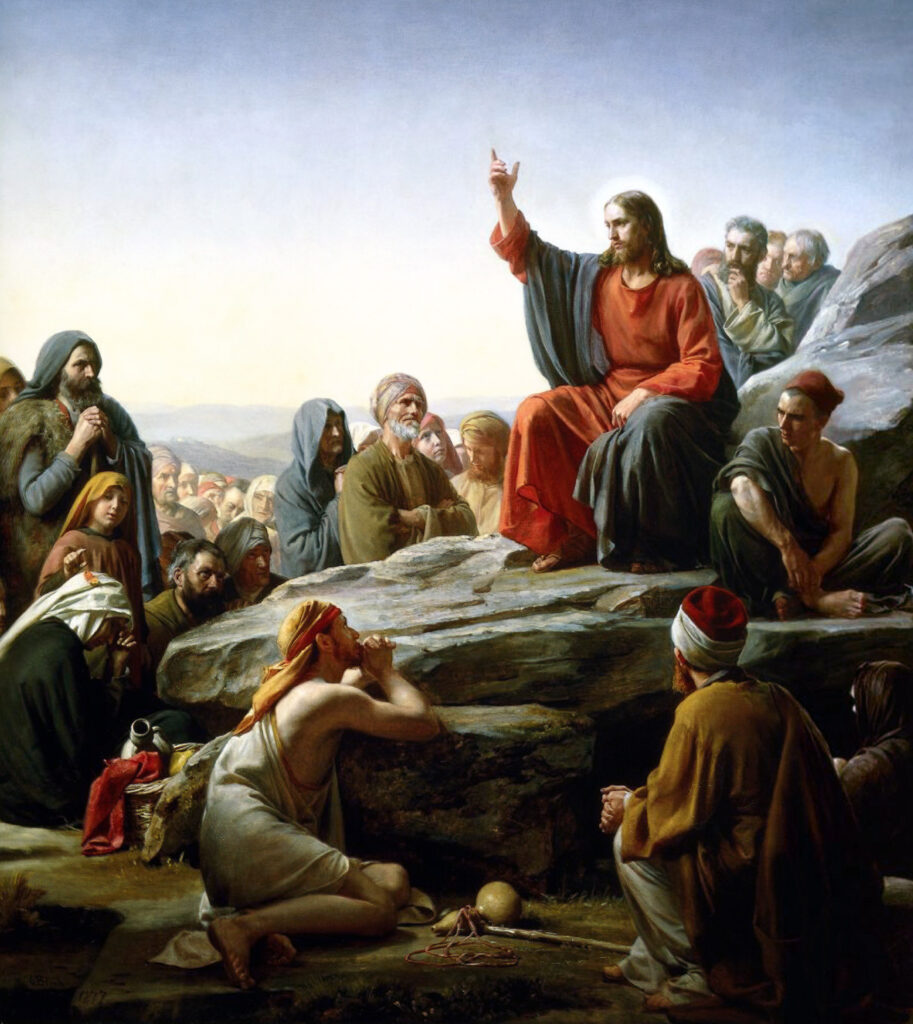Is sola scriptura, the doctrine of Scripture alone as our ultimate and infallible authority, itself unbiblical? Is sola scriptura taught in the Bible?
The cry of the Reformation is sola gratia, sola fida, solus Christus, sola scriptura, soli Deo Gloria. We are saved by grace alone, through faith alone, in Christ alone, according to Scripture alone, to the glory of God alone. That fourth sola, sola scriptura, is under attack as much as it has ever been. Once faith in the all-sufficiency of God’s written word is undermined the other four solas quickly fall with it.
Let’s be clear, the Bible is not the Christian’s sole authority. Faithful teachers and preachers, Christian authors, theologians, all hold some authority in the life of a Christian. We look to them to open up the Word to us, teach us the Way. I am appealing to an authority outside the Bible in a link in this next sentence, and further down. None of these, however, are our ultimate authority and all of these, even the best of them, are subject to sola scriptura. Wise Christians listen to sermons with open Bibles.
The Mormons question whether it was ever God’s purpose to have a closed canon. They are not alone in seeing no problem with ‘adding to Scripture’ because, they say, there are prophets on the earth today just as there were in Bible times, and anyway, they say, the Bible has passed down to us through ‘profane hands’ and can’t be completely relied on. This last is a question for another time, but here’s a link to a very helpful resource.
Christians believe that Scripture is not like any other literature, it is the ‘breathed out’ (2 Tim.3:16) written word of God. However you might imagine this process, it is God-inspired. The Bible is a record of God’s revelation of himself, of his purposes, and of his relationship with mankind and with his creation. People who insist on an open canon believe the same thing, but wish to add to it, while the great majority of Christians regard the Bible as sufficient, infallible. We believe that:
‘His divine power has granted to us all things that pertain to life and godliness, through the knowledge of him who called us to his own glory and excellence, by which he has granted to us his precious and very great promises, so that through them you may become partakers of the divine nature, having escaped from the corruption that is in the world because of sinful desire. ‘ 2 Peter 1:3-4
Two Words
Law
God speaks two words to us in the Bible; the Law and the Gospel, Moses and Christ. All else is history and commentary. What is the purpose of the first, the Law? The Bible tells us:
‘Now before faith came, we were held captive under the law, imprisoned until the coming faith would be revealed. So then, the law was our guardian until Christ came, in order that we might be justified by faith.’ Gal.3:23,24
Earlier, Paul tells us, ‘Now it is evident that no one is justified before God by the law, for “The righteous shall live by faith.” But the law is not of faith, rather,”The one who does them shall live by them.” Christ redeemed us from the curse of the law by becoming curse for us.’ vv 11-13
The Law brings us to Christ to be redeemed by faith alone in Christ alone; “The righteous shall live by faith.” Romans 1:17
Gospel
If the Law is meant to bring us to Christ, then what is the Gospel meant to do?
A favourite text used by some to argue that there is an open canon is John 20:30:
‘Now Jesus did many other signs in the presence of the disciples, which are not written in this book.’
There is so much we don’t know about what Jesus did, where is the missing record of these things? But the text goes on to say:
‘Now Jesus did many other signs in the presence of the disciples, which are no written in this book. But these are written so that you may believe that Jesus is the Christ, the Son of God, and that by believing you may have life in his name.’
It isn’t a question of whether we have an exhaustive record but whether we have a sufficient record. If the Law brings us to Christ, and the Gospel brings us to faith such that we have life in his name, then the Law and the Gospel have been sufficient to do what they were intended to do. So, what is the purpose of the rest of Scripture, the ’history and commentary’ I referred to?
The history is self explanatory in that it tells the story of Moses and God’s people, Jesus and God’s church. The commentary points us back to the unfolding of God’s purposes, first in Moses, and ultimately in Jesus’ coming as God and Saviour. When King Josiah effected a reformation in Israel he did it by pointing them back to Moses (2 Kings 22). When Jesus himself spoke on the road to Emmaus, ‘beginning with Moses and all the Prophets, he interpreted to them in all the Scriptures the things concerning himself.’ (Lk.24:27)
Paul writes:
‘All Scripture is breathed out by God and profitable for teaching, for reproof, for correction, and for training in righteousness, that the man of God may be competent, equipped for every good work.’ 2 Tim.3:16,17
Authority

It is striking that, when Jesus walked the earth he taught by an authority that stood above that of the teachers of Israel. Indeed, he made clear, time and again, that his interpretation of the Law was the ultimate and unquestionable interpretation:
‘You have heard that it was said…but I say to you…’ Mt.5
This is hardly surprising to Christians, who believe him to have given the Law in the first place.
Peter, in his address at Pentecost, preached the resurrection of Christ, declaring, ‘Let all the house of Israel, therefore, know for certain that God has made him both Lord and Christ, this Jesus whom you crucified.’ Acts 2:24,36
Paul, speaking in Athens gave assurance of his message by citing the resurrection:
‘Now he [God] commands all people everywhere to repent, because he has fixed a day on which he will judge the world in righteousness by a man whom he has appointed; and of this he has given assurance to all by raising him from the dead.’ Acts 17:30,31
Jesus’ is the ultimate authority, as attested to by his resurrection to the place of both Lord and Christ. Jesus is the ‘I say to you’ rule of the Christian faith.
He doesn’t stand among the angels ‘for to which of the angels did God ever say, You are my Son, today I have begotten you…Let all God’s angels worship him…Sit at my right hand, until I make your enemies a footstool for your feet.” Hebrews 1:5-14
He doesn’t stand among the prophets, ‘For Jesus has been counted worthy of more glory than Moses-as much more glory as the builder of a house has more honour than the house itself.’ Hebrews 3:3
After his ascension the apostles, who faithfully taught and passed on the message of the Gospel were the authority. The earliest church, ‘devoted themselves to the apostles’ teaching and the fellowship, to the breaking of bread and the prayers.’ Acts 2:42
Finally, what they said was recorded and Scripture becomes the rule. Any claim to ‘further light and knowledge,’ any insistence on an open canon must pass the test of established Scripture.
Sola Scriptura
God, through Moses, instructs Israel, ‘If a prophet, or a dreamer of dreams arises among you and gives you a sign or a wonder, and the sign or wonder that he tells you comes to pass, and if he says,” Let us go after other gods,” that you have not known, and “let us serve them,” you shall not listen to the words of that prophet or that dreamer of dreams.’ Deut.13:1-3
Writing to the Galatians, Paul insists:
‘Even if we or an angel from heaven should preach to you a gospel contrary to the one we preached to you, let him be accursed. As we have said before, so now I say again, If anyone is preaching to you a gospel contrary to the one you received, let him be accursed.’ Gal.1:8,9
To The church in Thessalonica, Paul writes:
‘Now concerning the coming of our Lord Jesus Christ and our being gathered together to him, we ask you brothers, not to be quickly shaken in mind or alarmed, either by a spirit or a spoken word, or a letter seeming to come from us to the effect that the day of the Lord has come. Let no one deceive you in any way.’ 2 Thess.2:1-4
In every instance there has to have been an established truth against which all claims to truth and revelation are to be measured. This is how sola scriptura works, testing everything by what is already established.
The best example in the New Testament of this principle in action is that of the Berean Jews, who, ‘Were more noble than those in Thessalonica; they received the word with all eagerness, examining the Scriptures daily to see if these things [taught by Paul and Silas] were so.’ Acts 17:11
False Christs and False Prophets
Jesus warned us, ‘Beware of false prophets who come to you in sheep’s clothing but inwardly are ravenous wolves.’ Mt.7:14
False prophets can look like the real thing, especially when we are not familiar with the real thing. John counsels, ‘Beloved, do not believe every spirit, but test the spirits to see whether they are from God, for many false prophets have gone out into the world.’ 1 John 4:1
Jesus warned his disciples, ‘For false christs and false prophets will arise and perform great signs and wonders, so as to lead astray, if possible, even the elect.’ Mt.24:24
The Bible gives us three tests to apply:
1. Orthodoxy
‘Keep a close watch on yourself and on the teaching. Persist in this, for by so doing you will save yourself and your hearers.’ 1 Tim.4:16
2. Lifestyle
‘The saying is trustworthy: if anyone aspires to the office of overseer, he desires a noble task. Therefore and overseer must be above reproach.’ 1 Tim.3:1,2
3. Fulfilment
‘But the prophet who presumes to speak a word in my name that I have not commanded him to speak, or who speaks in the name of other gods, that same prophet shall die. And if you say in your heart,”How may we know the word that the LORD has not spoken?” – when a prophet speaks in the name of the LORD, if the word does not come to pass or come true, that is a word that the LORD has not spoken; the prophet has spoken it presumptuously. You need not be afraid of him.’ Deut.18:20-22
You will not find sola scriptura taught in the Bible as a principle, but you will find it exemplified all over the text of Scripture. Passages of Scripture like those above, and many more, only make sense if you have an established canon, an authoritative standard, against which to test yourself, your understanding, your life and faith, and the claims to prophesy. It only works in light of the teaching of sola scriptura.

